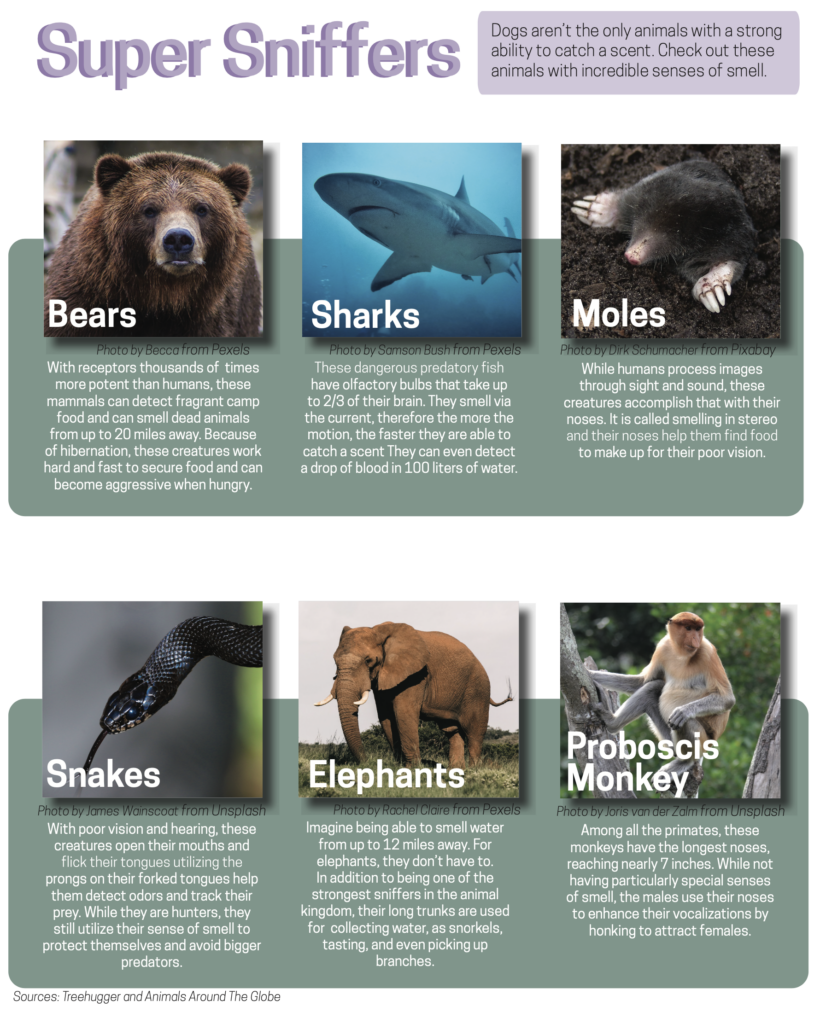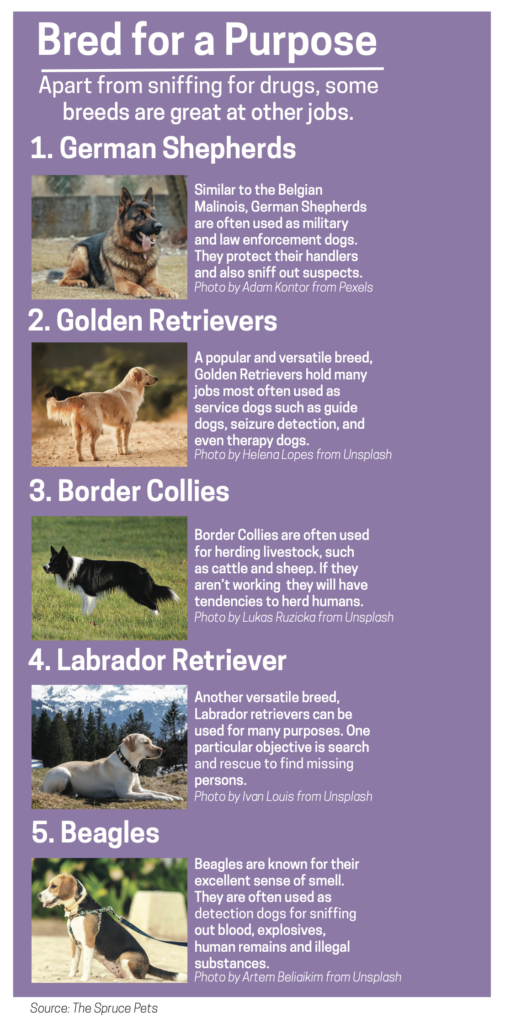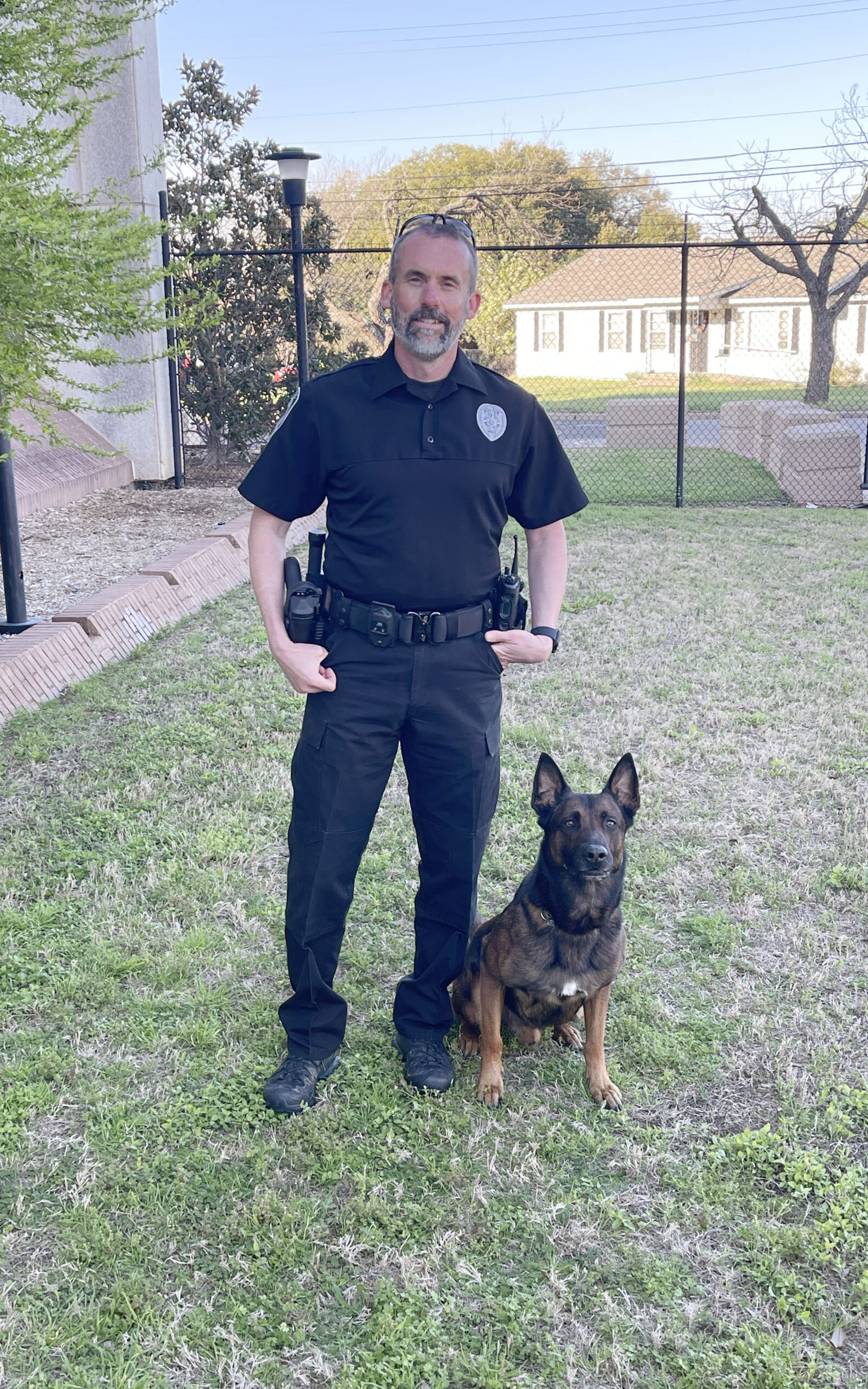READY TO GO TO WORK: Being partners for years, Andor and officer Mike Bucher have a close relationship that extends from the office to at home in the backyard.
Sniffing Out Suspects
Outside of fetching toys and eating treats, these officers have an important job out on the streets.
Story & Photos By Matt Kyle
You might think the stereotypical favorite meal of police officers is doughnuts and coffee, however, there are some officers in the Waco police department who prefer Kibble and bacon-flavored Dentastix.
In addition to their human officers, Waco PD has four police dogs that assist officers in searching for drugs, people and more. The dogs’ heightened sense of smell and responsiveness to training make them the ideal species for this kind of work. As such, these animals tow a fine line between pet and co-worker, and the officers who work alongside these dogs say they are an essential part of the department, for both their noses and the love they bring officers.
Officer Mike Bucher works in the K-9 unit alongside his canine partner, Andor, a 5-year-old Belgian Malinois. He said Andor has been in Waco PD for about four and a half years, and in that time, Andor has become part of his family. Andor lives at Bucher’s home and when he is not on the clock, he spends his time roaming the backyard and playing with Bucher’s children.
“He’s kind of like my left arm,” Bucher said. “I see him more than my own family. There was a couple times I’ve come to training and he’s not in the car with me. I’ve even said before, ‘My car squeaks differently.’”
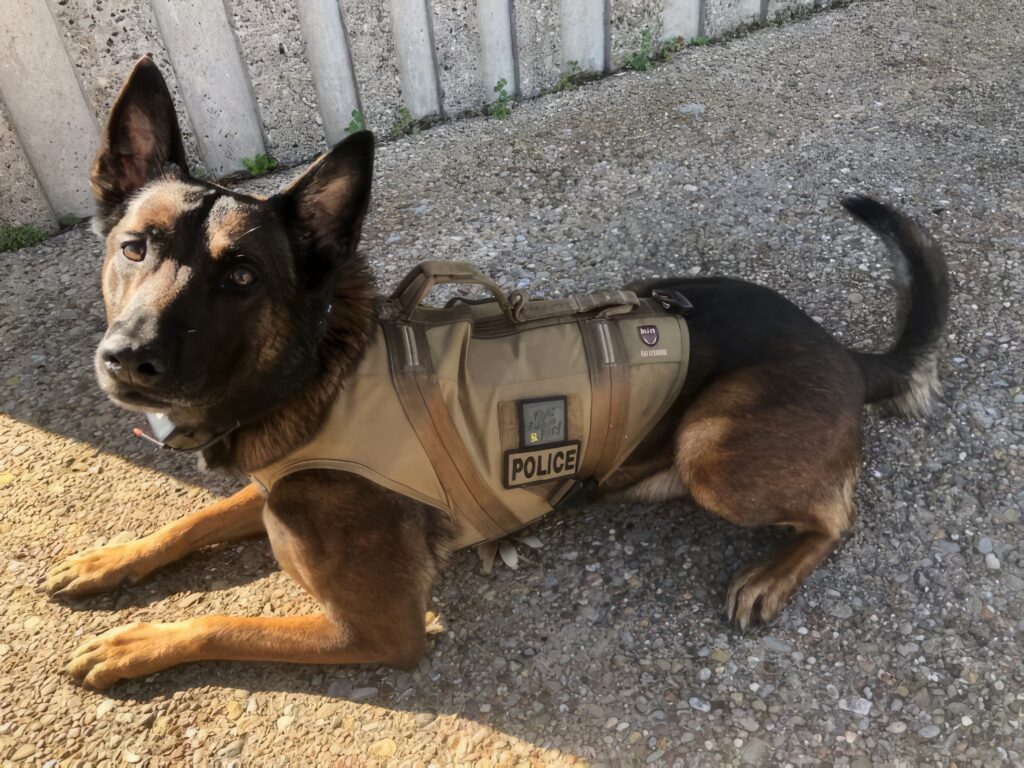
ON THE JOB: From his time as a puppy, Andor has been trained to know when he is on the clock and when it’s time to play. When Officer Bucher puts on his vest, so does Andor. Photo courtesy of officer Mike Bucher.
Andor was born in the Netherlands and can respond to commands in Dutch. Bucher said many police dogs are born and trained in Europe due to the high standards dog breeders are held to. He said Andor was specifically bred to compete in dog sports, but never competed and was sold to Waco PD.
As a police dog, Andor is trained to search for drugs or other contraband, evidence, missing people and hiding suspects. Bucher said police departments typically train dogs for one of two tasks, to either search for bombs or drugs, or for patrolling, so when the dogs indicate they have found something, officers know exactly what the dogs have found. Bucher said all the dogs in Waco PD are trained for drugs and evidence, while the McLennan County Sheriff’s Office has dogs trained to detect bombs.
Bucher said the dogs are trained through repetition and are taught to associate finding drugs with a reward of food or a favorite toy, which Bucher referred to as Andor’s “paycheck.” Bucher said this association leads the dogs to believe their work is a kind of game, which increases their enthusiasm for the job.
“That’s the employee of the century right there,” Bucher said. “Everything to this dog is a game. When he goes out there and does it, he wants to work. He wants to please. It’s in the dogs’ natural drives, like a hunt[ing] drive. Something out of sight, he has to find it. The prey drive is, ‘Oh man, the bad guy just ran, the rabbit ran. I got to go catch it.’”

EXPLORING THE SENSES:While teaching various courses in the biology department, Dr. Jason Pitts is also conducting research on how sensory behaviors in arthropods connects in their brains to understand specific diseases. Photo courtesy of Baylor University.
Dogs’ sense of smell is acute, and according to Virginia Bieluch, M.D. chief of infectious diseases at The Hospital of Central Connecticut through Hartford HealthCare, they can even detect diseases such as cancer or COVID-19. Dr. Jason Pitts, Baylor professor of biology, said dogs have one of the most highly developed senses of smell in the animal kingdom. In addition to detecting diseases, Pitts said there have been dogs trained to detect bedbugs by smelling the pheromones they give off to find mates and even to find specific species of mosquitoes that can carry malaria.
Dr. Micheal McCulloch is an epidemiologist for the Pine Street Foundation, a non-profit that helps cancer patients and those with chronic illness find more treatment information, and said he worked in a lab that studied the use of dogs in diagnosing people with cancer. McCulloch said the dogs were trained similarly to police dogs and were rewarded with food for being able to correctly differentiate between control samples and samples with cancer cells.
To find the cancer samples, McCulloch said the dogs are able to detect cellular changes that occur when a cancerous tumor is present. In detecting COVID, he said the dogs can smell the biochemical signs of the immune system’s response to the virus. In the lab, McCulloch said the dogs’ success rate for detecting cancer was in the mid 90s, which was sometimes better than computers being used for the same purpose.
When not chasing after “bad guys,” Andor is just like any other playful, happy dog. He loves to swim, run around, play fetch and receiving pets. Bucher said while it is discouraged for civilians to pet police dogs when they are actively working, the department encourages engagement between the dogs and Waco citizens.
“[Dogs] are one of the greatest PR tools ever,” Bucher said. “If you want to get the community involved and come talk, pull out your dog and people will come from everywhere. A lot of times — like if I’m eating lunch or whatever — somebody will come up and say, ‘Hey, can we meet your dog?’ I encourage them to. I love it.”
The dogs are so important to the department that they are even better protected than officers. Bucher said Andor’s duty vest is both bullet and stab proof, where officers’ vests are only bulletproof.
“The city loves the dogs more than us,” Bucher joked.
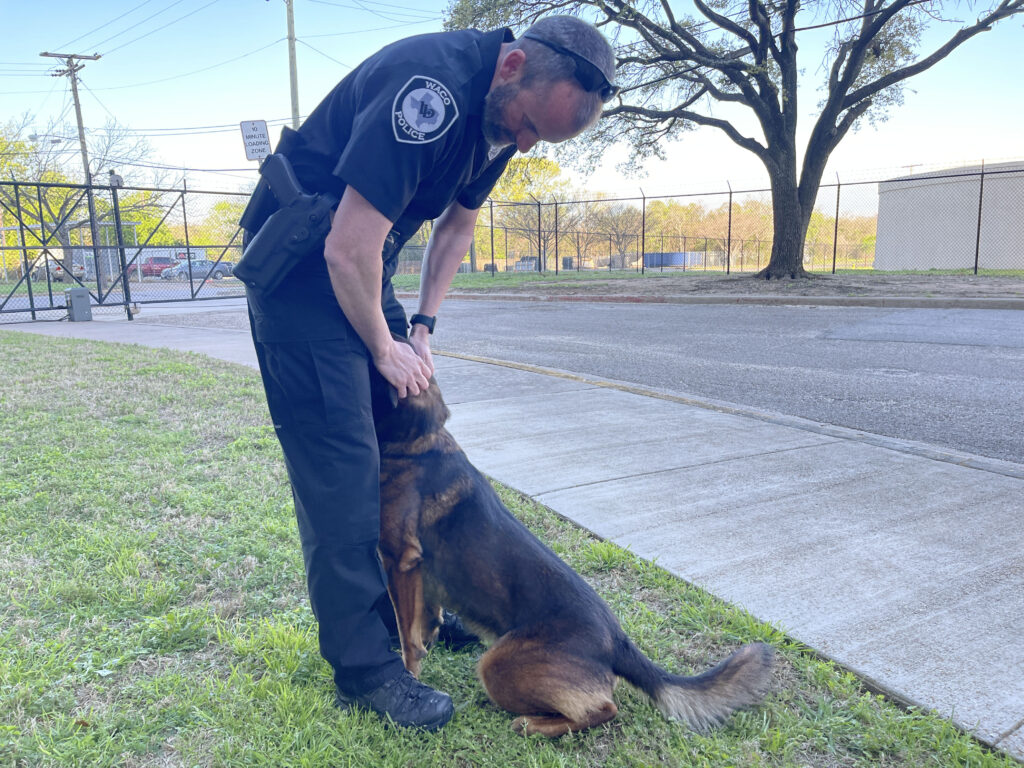
TOUGH LOVE: Even on the job, Officer Bucher still shows love to Andor when he does a good job and deserves a few more pets.
– Officer Mike Bucher
“He’s kind of like my left arm. I see him more than my own family. There was a couple times I’ve come to training and he’s not in the car with me. I’ve even said before, ‘My car squeaks differently.’”
Due to the specialized nature of Bucher and Andor’s job, Bucher said there is almost never a routine day for the two. During the workday, Bucher said Andor rides along with him as the two patrol Waco waiting for a call. Whenever the need for a police dog arises, Bucher and Andor are called to the scene, which can sometimes happen after hours of patrolling.
Bucher said police dogs typically will work for about eight to 10 years before retiring. Once police dogs retire, they become full-time pets and typically get adopted by a police officer. Whenever it is time for Andor to hang up his badge, Bucher said there is no question as to who would be adopting the dog.
“The things that me and that dog have done together, there’s no way I’m giving him to someone else,” Bucher said.
